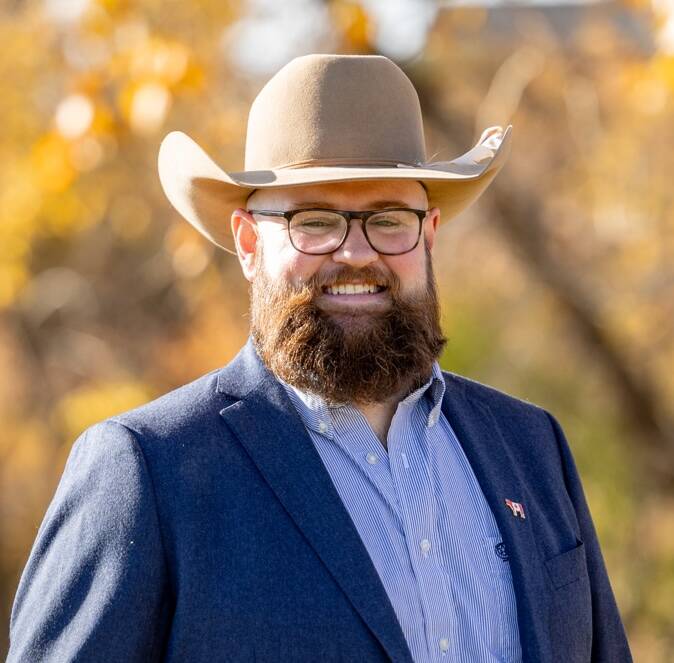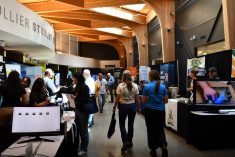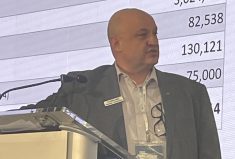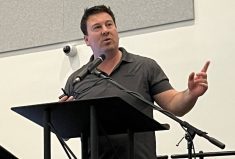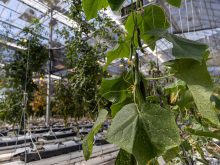Two Albertans — Jolene Noble of Manning and Ashley Nicholls of De Winton — have been selected as two of the 2026 Nuffield Canada Scholars.
Nuffield Scholarship recipients are required to do 10 weeks of international travel study within 24 months to examine and research an agriculturally relevant issue.
WHY IT MATTERS: Nuffield Canada scholarships provide valuable experience for Canadian agricultural professionals to learn around the world and bring new information to Canada’s agriculture industry.
Read Also

Alberta boosts investment in wetland restoration
The province plans to add 67 hectares of new wetlands to strengthen natural flood and drought defences and improve water quality.
Nicholls, 33, grew up in a small country town in Australia and came to Canada in 2011. He had never worked full time on a ranch but grew up helping on his friends’ farms.
“I’ve been riding on and off my entire life and didn’t work full time in ag until I came to Canada,” he said.
Now he lives in De Winton, just outside of Calgary, with his wife, cat, dog and several horses.
“My background started in the summer camp industry,” said Nicholls. He specialized in experiential learning and did horseback guiding in the mountains.
“I began to see the kind of connection that communication and leadership training can bring,” he said.
In 2020, he worked at WA Ranches at the University of Calgary.
“It was really eye opening and a fantastic opportunity to be kind of involved in the research side of things as well as production,” he said. “My role was ranch hand, but we were pretty heavily involved in the day-to-day, like handling cattle for the university staff,” he said.
After a few years of working at WA Ranches, Nicholls moved on to TELUS agriculture.
“When I was with TELUS, I was on the animal health field team, and I ended up running that team,” he said.
The team collected information for veterinarians.
“We would do that through feed sampling, post-mortem sampling, and then assisting the research team as well,” he said.
From 2023 to 2024, Nicholls went through the Canadian Cattle Young Leader’s Program and was mentored by Michelle Calvo-Lorenzo, who works out of the United States with Elanco. Calvo-Lorenzo’s main expertise is animal welfare issues.
“We started chatting about, the benefits of not only quality animal welfare, but quality human welfare,” he said. Nicholls travelled to upstate New York to meet his mentor and visit dairies with her.
“Her team works in that animal welfare space, but has found, over time, that a lot of the animal welfare comes down to how employees are being treated, and what those management systems look like,” he said. “That was really eye opening to get to see that in real life and see the benefit of that.”
The pair discussed her work in animal welfare, and Nicholls’ interest in human welfare and communications. From those conversations, Nicholls’ company, REACH Agriculture strategies, was born.
Nicholls and Calvo-Lorenzo outlined a framework, and Nicholls launched the company in June 2024.
Through Nicholls’ company, he does communication and efficiency development with ag operations and veterinarians. His network is mainly in the beef industry.
“At the end of the day, my goal is to have people yell less. I want people to be able to come into work understanding the job they’re doing that day and be able to perform to the highest of their ability and be set up for success,” he said.
“I work directly with producers and veterinary clinics, to look at their human systems. So, job descriptions, onboarding, training systems, their organization chart, and kind of breaking down some of the background systems so people have a better understanding of what’s going on day to day. We’ve seen a positive impact on employee satisfaction, reduction in turnover, and just general culture development in the workplace. People are becoming comfortable in the workplaces that I’ve been working with and they’re happy to work there.”
Nicholls’ research is sponsored by Nuffield Canada. His mentor is Steve Larocque, chair of Nuffield Canada, and 2008 Nuffield scholar.
“The big statistic that I hang a lot of this information on is the Canadian Agricultural Human Resource Council. In their 2017 report, they said there would be a job gap of 100,000 positions by 2030, which is a pretty large number,” he said.
“We want to maintain Canada’s potential as an agri-food world power. We need to make sure we have the individuals in place that can do the work,” he said. “That’s a big part of why I’m trying to look into unique perspectives on managing humans in ag systems,” he said. “The human side of ag, the people side of ag, is definitely something that’s been kind of historically underserved, because we had family-based systems to rely on for a very long time,” he said.
The Nuffield Annual General Meeting will take place in Victoria, B.C. and will include the training session for all current Nuffield scholars. In March 2026, the scholars will be heading to Osaka, Japan for a week for the contemporary scholars’ conference.
“All of the contemporary scholars globally will come to that conference and get together and kind of get a week-long crash course on how to be successful in their Nuffield time,” he said.
Nicholls’ third meeting with Nuffield scholars will be in Ireland. This is an optional triannual program that involves an extensive tour.
Nicholls will also be researching in his home country of Australia.
“I’ll be heading down there and will be looking at some of their different, more remote ag systems,” he said. Australia has large ranches (cattle stations) that are millions of acres, and days away from any town.
He’s also planning to get to Mongolia.
“Right now, they’ve got a large government program, and by 2030, they want to be a self-sustaining food system. A big part of that is the social development and making sure that their communities and individuals in them are strong enough to kind of manage their own food systems and increase production, because they’re primarily kind of a nomadic and pastoralist ag system right now,” he said.
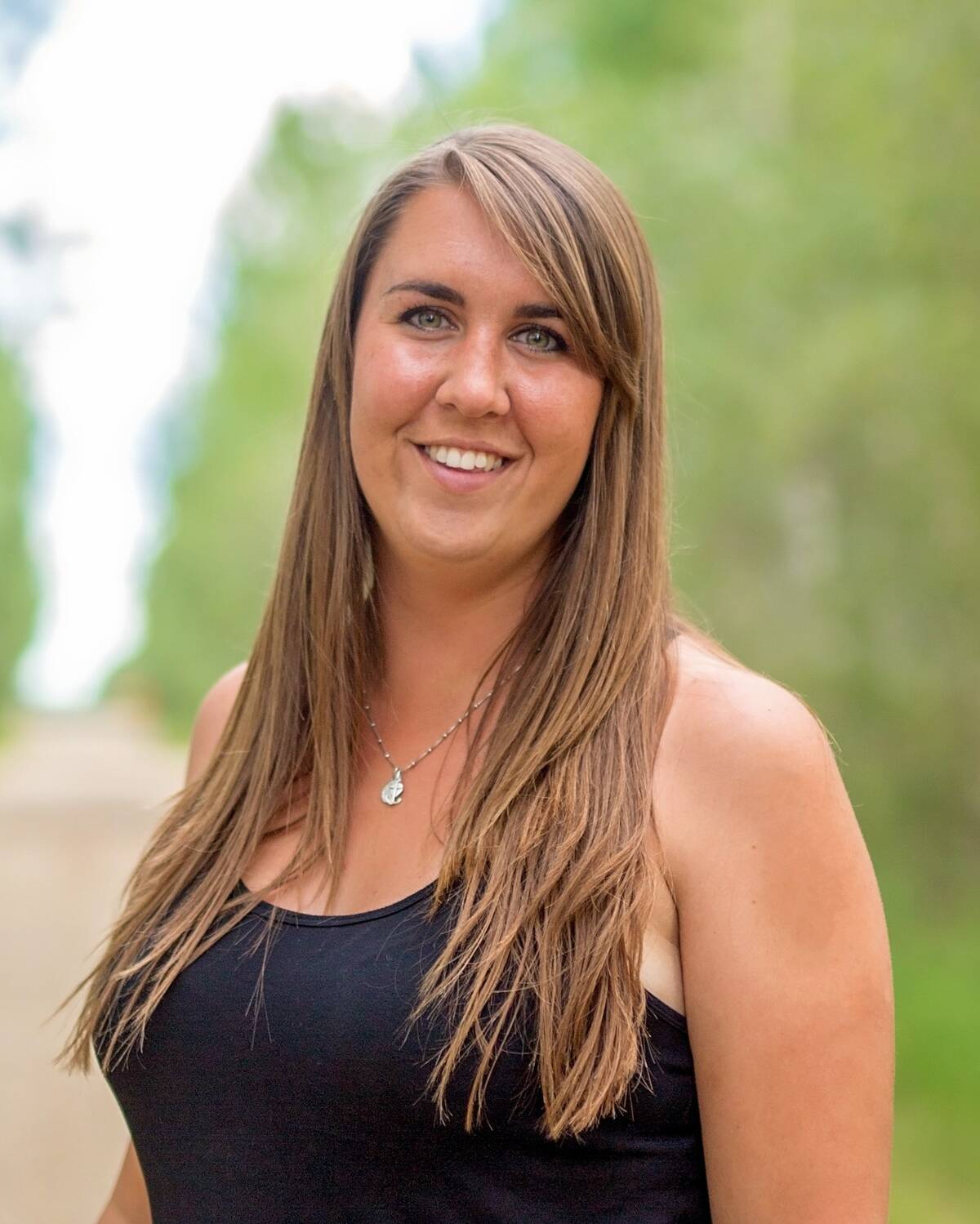
Noble, 36, grew up in Manning. Her parents, Bob Noble and Nora Paulovich, ran a mixed farming operation that was mostly cow/calf with some grain production as well. Noble attended the University of Alberta and obtained her Bachelor of Science in Agriculture before working in the agricultural industry.
She worked for the Canadian Cattle Association as the Canadian Young Leaders program coordinator and with the Young Cattlemen’s Council. She also worked with the Alberta Grains Commission on a sustainability file, did contract work for the Alberta Beef Producers on grazing extension tools, and sold minerals and nutrition with Blue Rock Animal Nutrition, and with Union Forage, now Millborn Seeds.
Noble returned to the farm, Jackknife Creek Land and Cattle, when she was working for Alberta Grains, which is now her Nuffield sponsor.
She proceeded to work off-farm jobs, as well as her contract jobs.
“I quit full-time off-farm employment in 2018, the same year that my brother came back to the farm. Our farm went from a single household farm to a three-household farm overnight,” she said.
During this time, Noble and her brother Lee dove into direct-to-consumer beef sales and started finishing some of their calves as well.
“In order for my brother and I to return to the farm with my parents, with all of us farming, we had to be inventive,” she said.
The farm is still cow/calf and grain, but Noble and her family have been keeping larger portions of the calf crop and finishing them for their beef sales.
There was no way to triple the size of the farm overnight.
“Land availability is scarce and the cost of bringing on more land, it’s also expensive and so is everything that entails with increasing your grain acres and increasing your cow herd numbers,” she said.
“We looked at other ways, and part of that was off-farm work. Part of that was forage seed sales that dovetailed nicely with our farm. Part of that was direct marketing our beef. We looked at other ways that didn’t just mean bringing on more acres so that we were able to return to the farm.”
Noble’s Nuffield research is based around the challenges of returning to the farm and farm expansion.
“I am looking at enterprise stacking primarily as kind of an overarching term for this but looking at ways to grow the farm without adding more grain acres, or more cow/calf pairs, which require more acres as well. I’m looking at the title as enterprise stacking for increased opportunity, resiliency and profitability on the family farm.”
Noble said one of the questions she is hoping to answer is how young people can return to the farm without working a full-time off-farm job and cramming farming into evenings and weekends.
Examples of enterprise stacking include vertical integration, capturing more value down the chain, or repurposing a piece of equipment that might over-equip the farm, but lead to more custom work.
“I’m interested to learn what other people have done in Canada and across the world to grow their farm in different ways,” she said. “Adding new enterprises increases the diversity on your farm. It changes the cash flow patterns on your farm and changes the number of different markets that affect your farm. Diversity, in that way, can help with risk management,” she said.
She is interested in looking at farms tackling direct marketing, agritourism, or capturing another part of the value chain.
Noble will be attending the Victoria, B.C, annual general meeting, and will be going to Osaka as well. She is currently in the middle of planning out her travel itinerary.
“Nuffield has what they call a global focus group program, which are five to six weeks of travel pre-planned. I think what they usually say is six countries, three continents,” she said.
Nuffield Australia plans those programs.
“It’s not mandatory for us to attend one of those, but it’s strongly encouraged. We will find out more information about those between November and December, so that will have a profound impact on what we choose for countries and travel moving forward, if we decide to participate in one of those programs,” she said.
Noble had a call to meet with her mentor, Brenda Schoepp, and Schoepp has already sent her some to-do lists.
The other two Canadian scholars are Antonious Petro from Montreal and Kristen Kelderman from Carrying Place, Ont. Each scholar will prepare a written report of their research findings and presents a summary at the Nuffield Canada Global Knowledge Exchange before the Nuffield Board, industry leaders, sponsors and peers.
The final Nuffield reports will be due January 2028.


